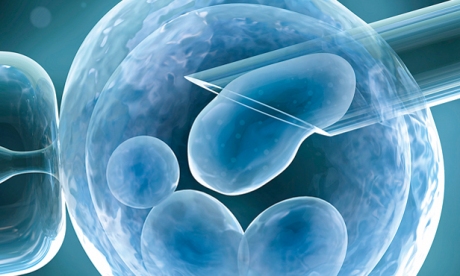Three-parent babies could be at greater risk of cancer and premature aging, and would have to be monitored all their lives.
These were among the warnings sounded before the United Kingdom’s House of Commons passed a new law permitting their creation.
The new regulations enable genetic processes to fight the transmission of mitochondrial diseases, such as muscular dystrophy.
The UK is the first country in the world to legalise the new techniques.
Two procedures were covered by the regulations.
The maternal spindle transfer technique involves the extraction of the genetic material from a mother’s egg, which is then inserted into a donor egg in which the maternal spindle has been removed and discarded.
The reconstituted egg is then fertilised by the father’s sperm before implantation in the mother.
The procedure is known as “three-parent IVF”.
The second technique, pronuclear transfer, involves up to four parents.
Dr Trevor Stammers, programme director in Bioethics and Medical Law at St Mary’s University, said babies produced by such methods will have to be monitored all their lives, as will their children.
Dr Paul Knoepfler, associate professor at the University of California, Davis, also warned that babies could be born with defects.
“Aberrations could lead to developmental defects in babies or also manifest in later life as increased rates of ageing of cancer,” he said.
Stuart Newman, professor of cell biology and anatomy at New York Medical College, said the new procedures disrupted the “evolutionary compatibility” between the nucleus and the mitochondria of the cell.
“It is going to lead to children with conditions which, in some cases, will probably be worse than the conditions they are trying to avoid,” he said.
A technique similar to that approved in Britain has been banned in China.
In the United States, the Food and Drug Administration has decided such techniques are not safe enough to be approved.
The UK’s House of Lords will consider the legislation on February 23.
If it passes, the first human trials could take place from October and the first babies born by late 2016.
The Catholic bishops of England and Wales expressed concerns over the ethics of the new procedures.
Sources
Additional readingNews category: World.




